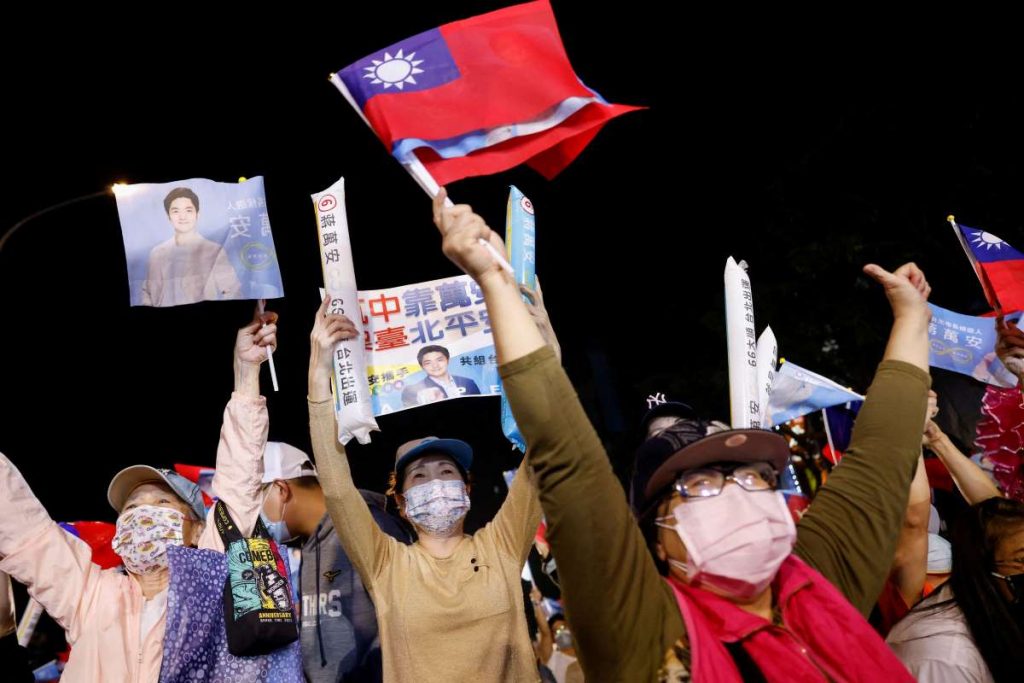January 13 – Election Day:
On Saturday the people of Taiwan will go to the polls to vote for the future of their nation. With polls showing an incredibly tight race, the results will surely have regional and worldwide impacts – with both China and the United States watching closely.
The Parties and Candidates:
Two main contenders, Ching-te Lai of the ruling Democratic Progressive Party (DPP) and Hou Yu-ih of the opposition Kuomintang (KMT), are vying to succeed President Tsai Ing-wen, who has reached the presidential term limit. Ko Wen-Je, founder of the Taiwan People’s Party (TPP), is running as a third party-independent.
Ching-te Lai, or as he’s known in the West – William Lai, is a seasoned politician who served as Vice President under the current President, Tsai Ing-wen. Lai, a soft-spoken but resolute figure, promises continuity with Tsai’s pro-independence stance. He advocates for bolstering Taiwan’s military, strengthening ties with democratic allies like the United States, and solidifying Taiwan’s distinct national identity – separate from mainland China. Essentially, he aims to continue the current administration while forging stronger ties with the West and seeking informal recognition. Lai walked back previous comments about formal independence.
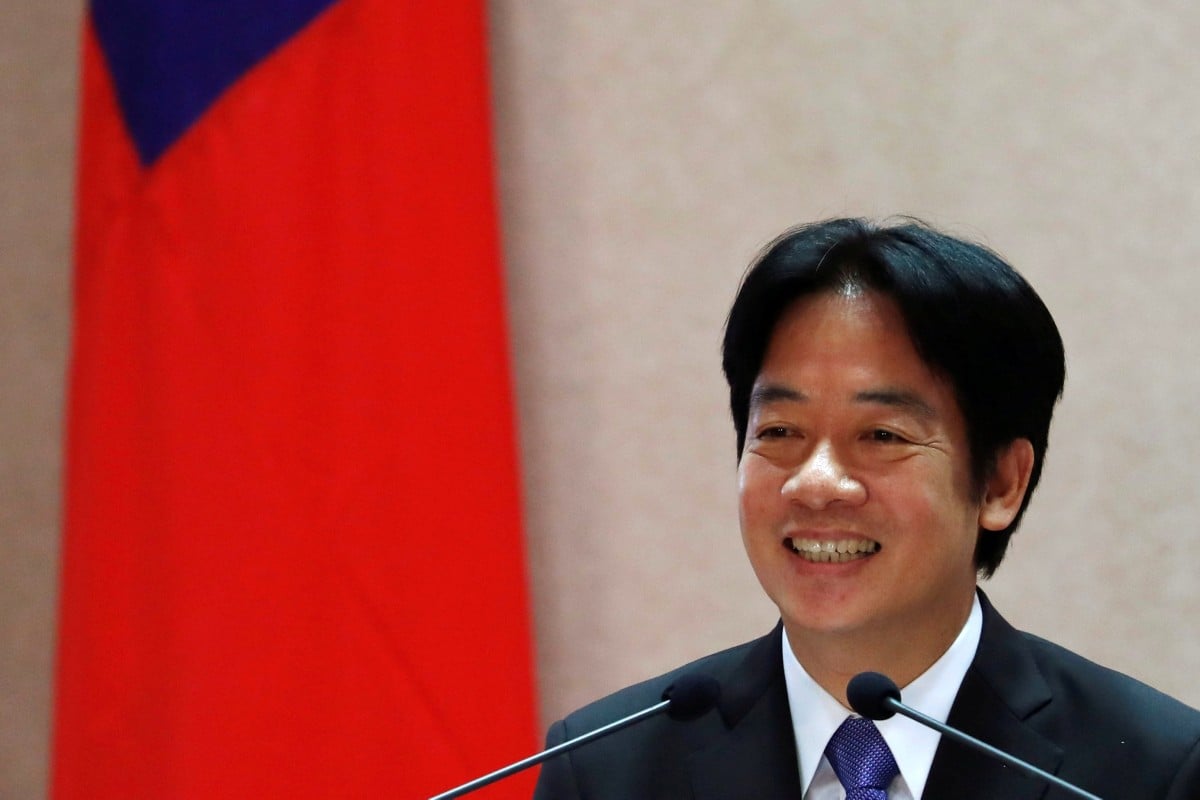
Hou Yu-ih is a charismatic former police chief and the widely successful current mayor of New Taipei City, though he is currently on leave. He advocates for closer economic relations with China while maintaining the peace-hopeful status quo of ambiguity on formal sovereignty. He seeks to avoid antagonizing China and desires to focus instead on internal Taiwanese domestic issues, such as the economy and infrastructure. He is rather disliked by the radical members on both sides of the China/Independence debate due to his lack of connections to mainland China and his history of DPP crackdowns as a police officer during the Martial law period of the mid-to-late 20th century.
Lai holds a slight lead, according to recent polling data. But the DPP faces incumbent-party challenges, grappling with the fatigue of eight years in power and growing public concerns about the economy. The KMT, meanwhile, seeks to capitalize on this discontent and follow the safe route on sovereignty, using it’s historic ties to China.
Running as third-party, Ko Wen-Je, the former mayor of Taipei, is known for his populist ideals and grounded approach. He is a highly respected surgeon, having served as the director of emergency and critical care at National Taiwan University Hospital for over a decade, before winning the Taipei mayoral race as an independent candidate. In 2019, Ko founded the Taiwan People’s Party.
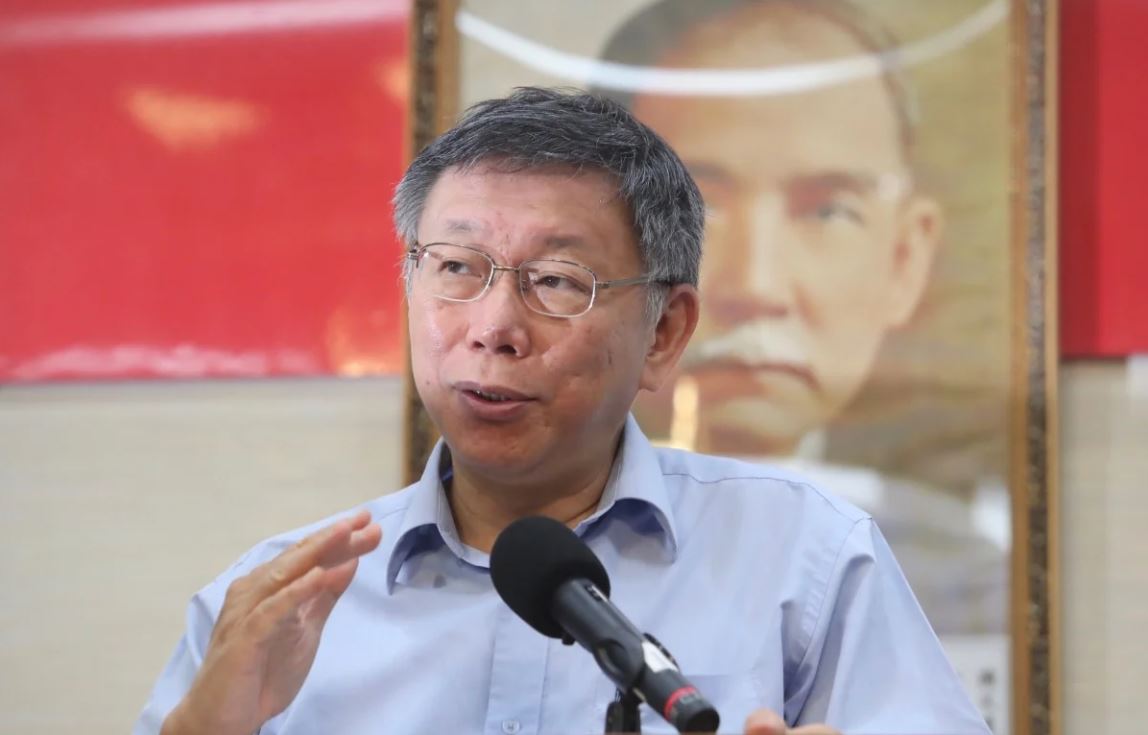
Ko’s political stance is considered middle to the two main parties. He advocates for maintaining a stable relationship with China while firmly upholding Taiwan’s independence. He emphasizes economic pragmatism and believes in strengthening ties with both China and the West. This middle-ground approach appeals to voters who are dissatisfied with the polarization of Taiwanese politics and seek a more moderate perspective, but has also alienated some of the hardliners on either side.
Analysts suggest he could theoretically siphon off enough votes from both major parties to gain a victory. Otherwise, he may act as a third-party factor, taking votes from both the DPP and KMT and tipping the balance in anyone’s favor.
The Platform Differences:
The DPP’s platform rests on these key points:
- National identity: The DPP seeks a formally and fully independent Taiwan, distinct from mainland China. This resonates with younger generations, who have little connection to the mainland and see companionship with the West.
- Economic expansion: While pushing for independence, the DPP recognizes the importance of economic ties with China. They also seek to promote economic diversification and free trade agreements with other nations so as to not be too reliant on the mainland.
- Social liberalism: The party champions progressive policies like same-sex marriage and environmental protection, appealing to young voters.
However, as noted, the DPP faces challenges. Rising living costs and economic concerns may chip away at their support. Maintaining a balance between asserting independence and avoiding antagonizing China is a delicate position that doesn’t receive firm, universal support from the West.
The KMT’s platform emphasizes:
- Experience: The party boasts a long history of governance in Taiwan, appealing to voters seeking stability and experience.
- Economic pragmatism: Focusing on improving people’s livelihoods through closer economic ties to China resonates with many, especially in older generations and those who are lower income. Hou promises to improve domestic infrastructure, healthcare, and social welfare.
- Moderate stance: Hou’s emphasis on dialogue and avoiding conflict with China attracts those wary of the DPP’s more assertive approach potentially leading to war. The KMT offers a stark contrast to the DPP’s call for independence, advocating for stability and closer economic ties with mainland China.
However, the KMT faces its own challenges. Its historic links to China raise concerns about potential compromises on Taiwanese sovereignty. Additionally, its internal divisions between “deep-blue” pro-China and more moderate factions cause a lack of trust in the stability of a KMT government.
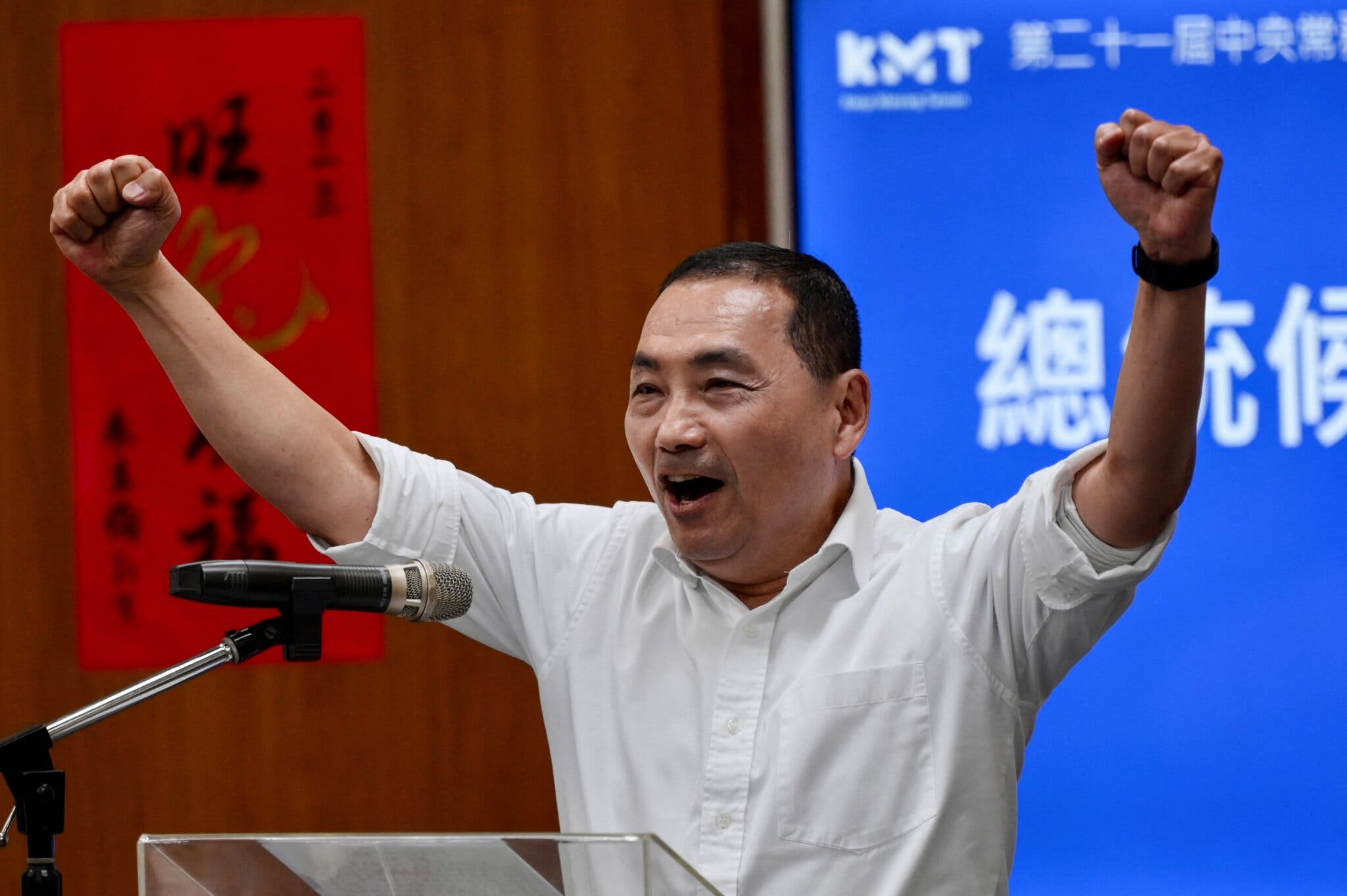
The TPP’s platform is based on:
Third Party Politics: The TPP sees itself as a “third force” beyond the entrenched KMT and DPP. They criticize the establishment’s gridlock and seek reform through transparency, efficiency, and competence.
Unique China Stance: The TPP rejects the idea of being “pro-China” and “pro-independence,” prioritizing winning solutions over ideology. They advocate for maintaining positive relations with both China and the West, seeking economic benefits while safeguarding Taiwan’s sovereignty.
Economic Growth: Much like the DPP, the TPP recognizes Taiwan’s economic dependence on China but advocates for diversifying its trade partnerships. They seek to strengthen ties with regional and international allies by promoting free trade agreements and attracting foreign investment. They propose substantial domestic investments in infrastructure, healthcare, and education, along with tackling environmental issues like pollution.
While the TPP’s platform resonates with voters solutions beyond the traditional party lines, their lack of established political backing and their ideological flexibility are viewed by analysts as potentially damaging to voter trust. With few other major political leaders, their success hinges on Ko Wen-Je’s ability to attract voters disillusioned with the existing political landscape.
China and Taiwan:
For China, Taiwan remains a renegade province and a top priority territory to reclaim – by force if necessary. This stance from China and the increased pressure have been first and foremost on every voter’s mind. China’s desire for Taiwan shapes the geopolitical landscape in the region and influences Taiwanese elections by becoming a significant factor in political debates and voters’ considerations.
China’s desire for Taiwan is rooted in historical, political, and cultural factors. The Chinese government views Taiwan as a part of its territory and considers the island’s reunification with the mainland as a long-term goal. This perspective stems from the Chinese Civil War (1927-1949), which ended in the defeat of the Chinese Nationalist Party (Kuomintang or KMT) by the Chinese Communist Party (CCP). The KMT retreated to Taiwan, maintaining its claim to be the legitimate government of all China while the CCP controlled mainland China. Chinese President Xi Jinping has been very clear on the CCP’s stance towards Taiwan: Unifying Taiwan with the mainland is considered a crucial step towards national rejuvenation and the completion of their national sovereignty and respect under the “One-China” principle. This belief has been a cornerstone of China’s foreign relations and diplomacy for decades.

There are a number of reasons why China is intent on regaining Taiwan. China views Taiwanese independence as a threat to its national unity and a potential “successful alternative” to the CCP within China. Additionally, China suffered what they consider a humiliating defeat against the Japanese in the 20th century. Reuniting Taiwan fulfills the concept of “China’s sacred territory” and reinforces national pride, healing the wounds of not only the First Sino-Japanese War (1937-1945), but also the Chinese Civil War. Economically, China sees integration as beneficial and has sought to enhance economic ties through initiatives such as the Economic Cooperation Framework Agreement (ECFA), an initiative which is largely attributed to the KMTs 2016 election loss.
Many in China also see democracy and a “free society” as an untenable position for the Chinese people. The CCP believes that democracy is incompatible with Chinese culture and traditions, and a successful democratically-based ethnically Chinese nation in Taiwan would stand in opposition to this claim.
There are three main factors to consider when weighing China’s influence over Taiwan and, by extension, its elections. Firstly, China’s significant economic influence over Taiwan and the surrounding region fosters the potential to boost or destroy the economy. The threat of sanctions or trade disruptions can influence voters concerned about their livelihoods, especially in an election where the economy is already a major focus.
Another major factor is the Chinese military. Taiwan is separated from the mainland by only a 180-kilometer-wide strait. The People’s Liberation Army regularly holds exercises in the area, including mock naval invasions of the island. The Chinese military potentially holds the power to blockade Taiwan and cut off all economic and military support by both air and sea without even needing a full-fledged invasion – which analysts agree would likely be costly. However, it should be noted that Taiwan’s military is considered fairly outdated and substantially smaller than China’s. Taiwan focuses its defensive structure primarily on using the island’s terrain to its advantage in a guerilla defense that would theoretically make taking the island by force an unworthy cost. In utilizing it’s asymmetrical warfare capabilities, Taiwan can use drones, anti-ship missiles, and mobile surface-to-air weapons to hold off a direct Chinese take-over. However, as stated, China has many other options for exerting its direct control over the island.

The third major factor is international support, primarily from the United States. The United States maintains a difficult stance on Taiwan, officially adhering to the “One-China” policy and recognizing the People’s Republic of China as the sole legal government. However, the US also employs the concept of “strategic ambiguity”, in which, through programs like the Taiwan Relations Act (TRA), they can highlight a commitment to assist Taiwan in maintaining its military while facilitating unofficial relations through institutions like the American Institute in Taiwan (AIT). Despite lacking formal diplomatic ties, the U.S. sells arms to Taiwan, hosts Taiwanese politicians, and engages in extensive military training.
Despite this, its position reflects a delicate balance, with a large portion of Taiwanese not believing the US is willing or able to come to the direct aid of Taiwan in the event of a conflict. A 2022 Taiwanese Public Opinion Foundation poll found only 53.8 percent trusted in US support. In August 2022, an INDSR poll showed that 49 percent of Taiwanese believed the US would militarily defend Taiwan.
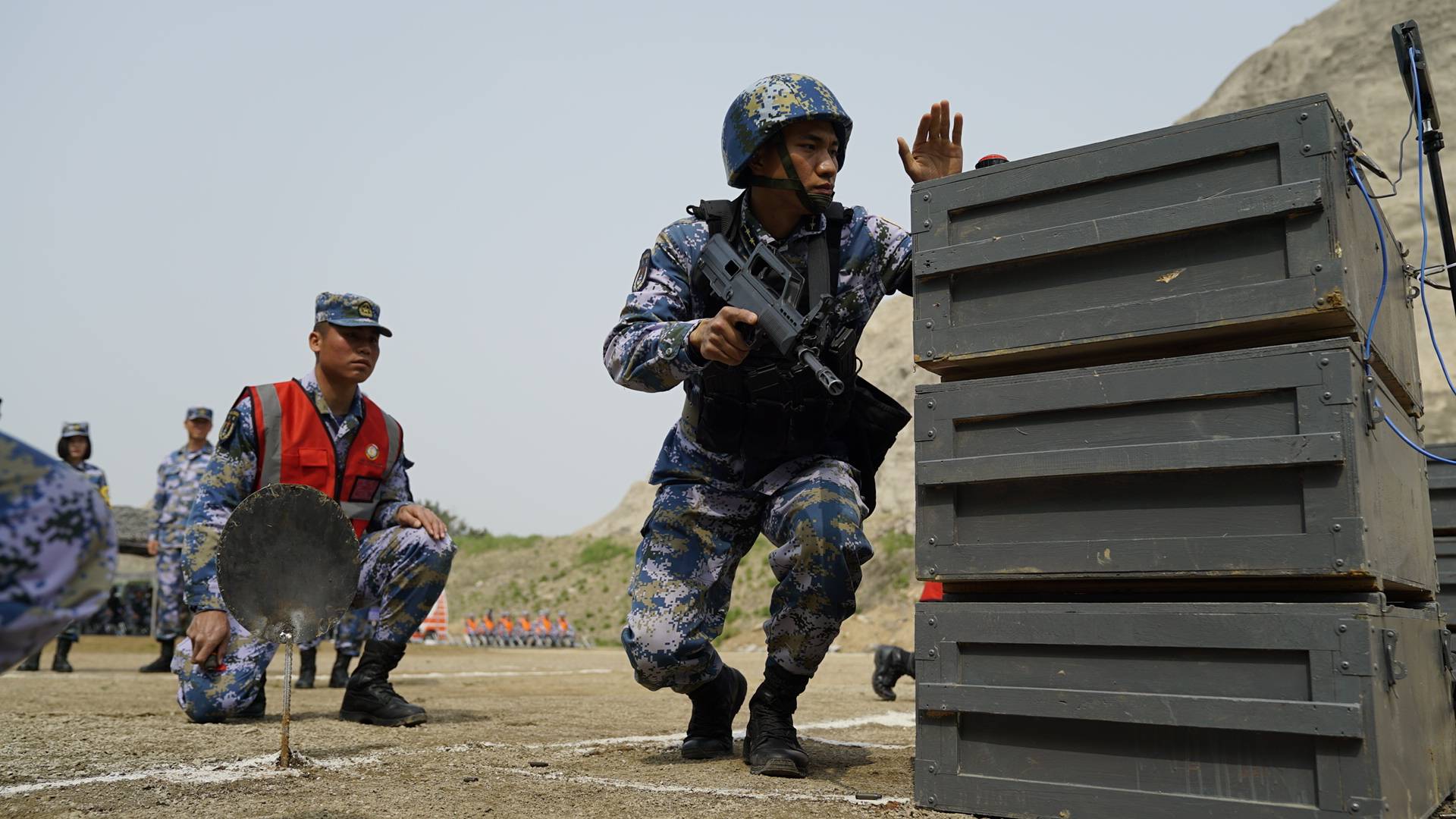
The Future and This Election:
The outcome of the 2024 Taiwan election has far-reaching implications for the island’s future, its relationship with China, and the security status of the entire Indo-Pacific region. A Lai win could significantly strain cross-strait relations, while Hou’s victory might offer temporary stability but delay the resolution of the Taiwan issue. The presence of a third-party middle-ground candidate like Ko Wen-Je adds even more uncertainty to the already volatile situation.
Ultimately, China’s desire for Taiwan remains a constant pressure point in the region, staying ever present in both voter’s and world leaders’ minds for the 2024 election and its aftermath. Only time will tell how this complex interplay of history, nationalism, and political aspirations will shape the future of Taiwan, its powerful neighbor, and the entire world.
Voting Updates Shortly:
Atlas News will be providing regular updates for the 2024 Taiwanese Presidential Election. As of publication at 0100 EST, the polls have opened and the election is well underway.
(UPDATE:) Ching-te Lai and the DPP have won the election and will continue in power. See more here.
Additionally, Chinese aircraft led incursions near Taiwan airspace during and directly following the election. See more here.


